5 Ways USAID Empowers Women as Leaders Against the Climate Crisis
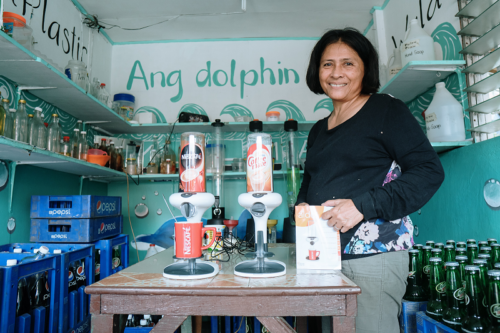
This blog was originally published in USAID Medium.
With a seat at the table, women contribute to decision making on natural resources and climate solutions
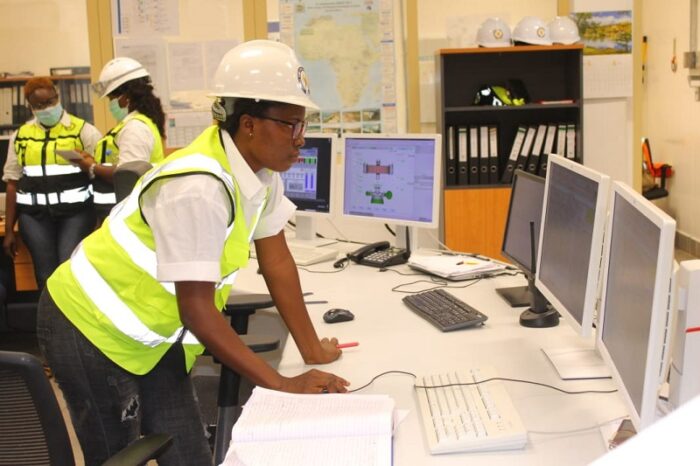
One of the greatest threats to our global community is climate change, and research shows women are more vulnerable than men to its consequences. Women and children are 14 times more likely than men to die due to climate disasters such as droughts and floods, and they make up 80 percent of those displaced by climate change. Climate change can also exacerbate gender-based violence, including early and forced child marriage.
But women and girls are not just victims of climate change ― they are leading the way in designing and implementing climate change solutions, and their valuable and unique knowledge on natural resource management and adaptation strategies are critical. The tools we use to combat climate change are more effective when women are meaningfully empowered at the household, community, national, and international levels. Fueled by a women’s economic empowerment fund at USAID, here are five ways we are empowering women in the fight against climate change:
1 – Advancing Gender in the Environment
The Advancing Gender in the Environment (AGENT) partnership between USAID and the International Union for the Conservation of Nature has recognized women as agents of change in the climate change sector for nearly a decade. Through AGENT, we conduct research and publish our findings on how climate change affects women, and help countries develop climate change gender action plans to ensure climate solutions are more effective and inclusive. One of our recent studies found that climate change, state fragility, and gender inequality are interconnected issues and that USAID and other development partners should approach these issues together so solutions are more effective and can have impact in all three areas.
With USAID’s support, AGENT is working to increase gender equality and women’s empowerment in the fisheries sector, where women make up nearly half the workforce, but their ability to advance economically is limited. This exclusion holds women back from earning income and reaching new markets, and can thwart efforts to increase the sustainability of the fishery overall.
Through this partnership, USAID has supported knowledge and tools that have helped build the capacities of over 25,000 women and men policy makers and practitioners around the world on how gender and environment are linked, so they can create more sustainable and equitable policies and programs to fight climate change.
2 – SERVIR
A 16-year partnership between USAID and NASA, SERVIR supports local decision-makers across the developing world to use geospatial technology to manage the effects of climate change. SERVIR’s data helps countries anticipate droughts, floods and forest fires, so officials can respond quickly before lives are lost.
Since 2019, USAID has worked to ensure SERVIR’s geospatial services consider the ways climate change affects women in particular and design solutions that specifically meet their needs, such as ensuring that disaster information is shared through communication channels that women are able to easily access. We also have created opportunities for women to work and grow their careers in the geospatial sciences workforce by providing technical and leadership skills training and mentorship opportunities. A more diverse and well-equipped workforce can better tackle the problems and priorities of different types of community members that SERVIR and its partners serve.
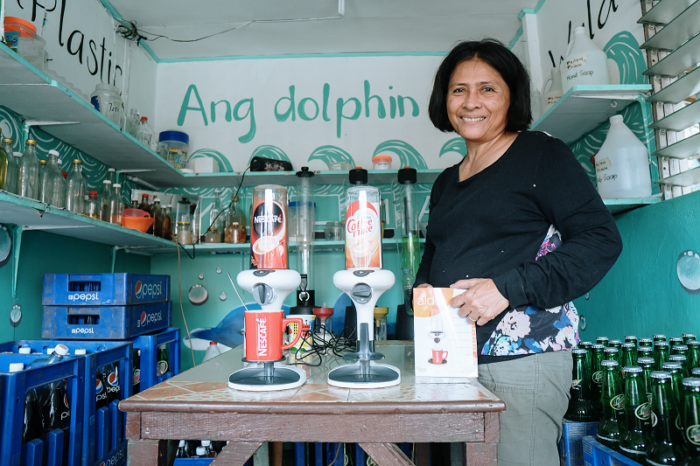
3 – Clean Cities, Blue Ocean
Plastic waste pollution doesn’t just spread microplastics around the globe — it contributes to climate change by clogging mangroves that help regulate the ecosystem, and releasing high quantities of carbon dioxide when incinerated.
USAID’s Clean Cities, Blue Ocean program halts ocean plastic pollution in rapidly urbanizing areas of Asia and Latin America that contribute to the estimated 8 million metric tons of plastic that flow into the ocean each year. As part of this program, we are investing in new business approaches led by women entrepreneurs that reduce single-use plastics, and we are supporting the economic advancement of women who work as informal waste collectors.
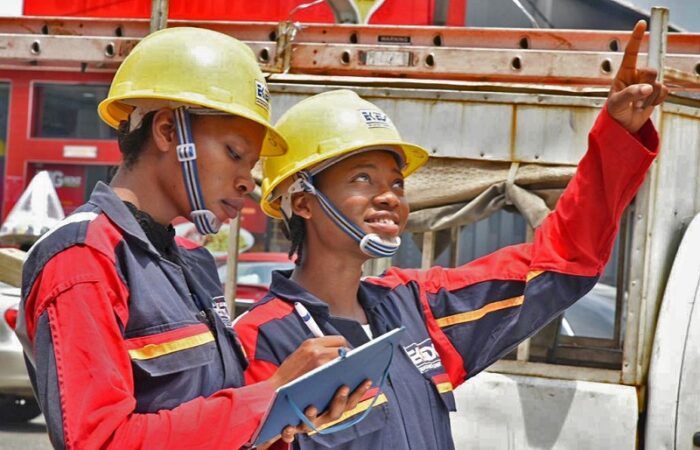
4 – Engendering Utilities
Effective and high-functioning utilities are critical to achieving climate change goals, particularly by introducing clean and renewable energy to reduce emissions and encouraging the efficient use of resources in the communities they serve.
USAID’s Engendering Utilities program creates economic opportunities for women working in traditionally male-dominated energy and water utilities, ultimately strengthening utility performance. The program has trained over 6,000 women to advance their careers, and over 1,000 women have been hired in the energy and water sectors, including in management and technical positions.
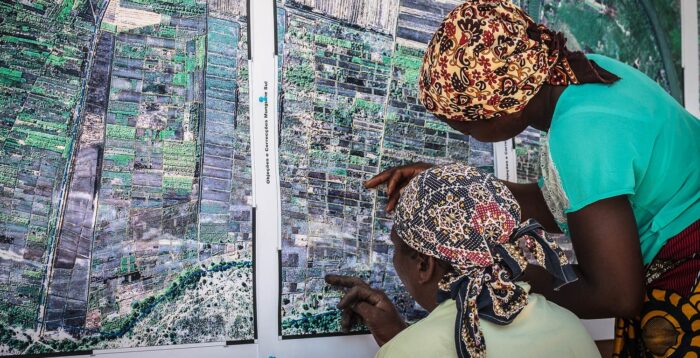
5 – Women’s Land Rights
When women have secure land rights, their resilience to climate change increases, as does their communities’ resilience overall. But women who rely on customary land tenure systems that disadvantage them are the most impacted by climate change, especially as forest and water sources are depleted and soil on land degrades. Without secure land rights, they are less able to prevent overgrazing of pastureland and deforestation, which worsen greenhouse gas emissions.
USAID works to implement practices such as joint titling and land registration to ensure women have secure land rights. USAID works in Ghana, Malawi, Mozambique, Zambia, and India to support legal and land resource governance reforms around women’s land rights.
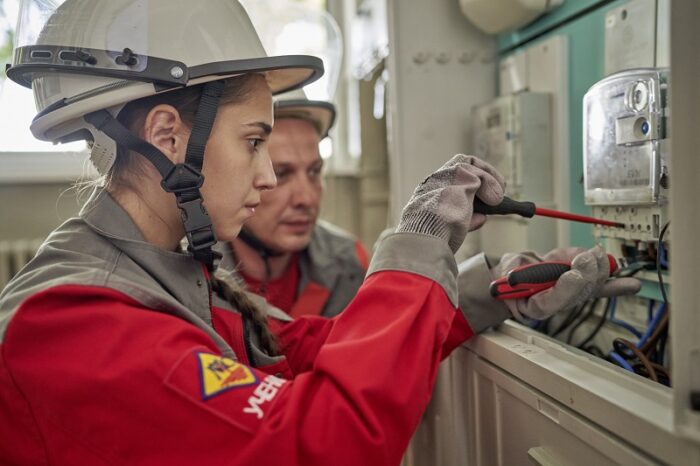
The climate crisis is acute and shows no sign of abating. Economically empowering women leverages their innovation and expertise and enables their transformational power to increase climate resilience. With a seat at the table, women contribute to decision making on natural resources and advocate for climate solutions that meet their needs and are more likely to be adopted by all people — benefiting our shared planet and our global community.
About the Authors
Corinne Hart is the Senior Gender Advisor for Energy and Environment and Georgia Hartman is a Technical Advisor for Gender and Environment, both in USAID’s Bureau for Development, Democracy, and Innovation.

